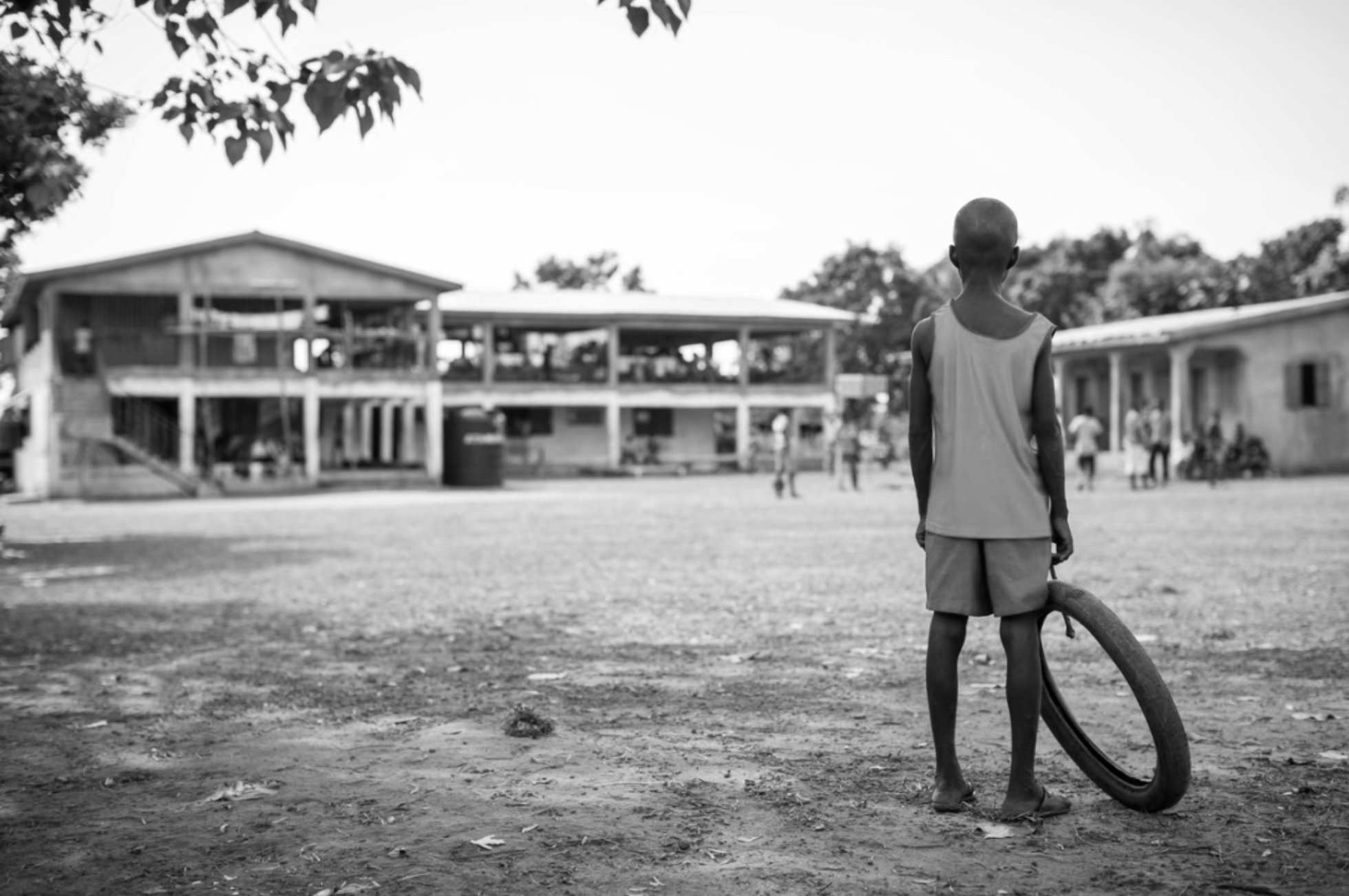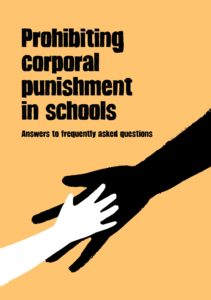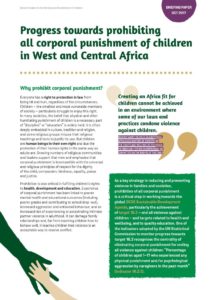Guest feature: ‘Our teachers normally used to beat us but that has ended now’
Why this matters
Corporal punishment in schools violates children's right to education, health and development, and to freedom from violence, and has been shown to negatively affect educational outcomes and contribute to school drop-out. Governments are obliged under international law to prohibit corporal punishment for all children in all schools and ensure that school discipline methods respect children’s human dignity and conform with the UN Convention on the Rights of the Child.
‘Our teachers normally used to beat us but that has ended now’
Quote by a Pupil interviewed at the end of EducAid’s teacher training programme at his school
Sierra Leone, West Africa, a beautiful country ridden with poverty, devastated by war, Ebola and endemic corruption and tired of being described as ‘having great potential’, is the home of the organisation EducAid.
On the back of a student exchange visit, two British friends started a small scholarship programme in 1994. Over time, a network of schools has grown up, providing high-quality, education to some of the most vulnerable. EducAid's school fees are not monetary. Instead, what is expected from students is excellent attendance, excellent behaviour and excellent effort – things which are, in any case, priceless. Each day, the children and young people at EducAid's schools take responsibility for their learning and education by ensuring they provide these things each day when showing up for school.
EducAid believes that education must serve the social, moral and cognitive needs of children and society. What we teach is important but how we teach is more so!
We work for academic excellence but will never be satisfied with that alone. Our strategies for creating a respectful environment for learning include:
- Agreed expectations whereby students and teacher negotiate together what they can reasonably expect of each other and then hold each other to account for living up to them;
- Stars and Ubuntu stars rewarding good work and kind behaviour respectively which encourages a focus on the positive rather than the negative to avoid where possible the need for sanctions;
- Restorative practices rather than retributive, encouraging staff and students to restore relationships as a priority over punishing for offences;
- Peer mediation, involving trained students to counsel their colleagues and resolve minor conflicts;
- Group study and peer learning whereby students learn to help each other as they work through pre-prepared materials that cover the entire syllabus and providing critical thinking and values development opportunities as they go through;
- ‘Every Voice Counts’ strategies engaging all members of the school community in taking responsibility for improving school life, addressing injustices and keeping each other safe;
- Shared Leadership Teams involving students and staff to take responsibility for Safety (with a particular concern for child protection and safe-guarding issues), Finance (planning the use of the school miscellaneous budget), Logistics (organising food distribution, maintenance issues and more) etc.
“ Respect has many meanings but for us respect means that all members of the community feel safe, feel listened to and know their voice is taken seriously. ”
We believe that this respectful environment makes possible our achievement of great academic standards too. Despite working with some of the most vulnerable young people in the country, EducAid attains among the best public exam results.
Education in Sierra Leone is conducted in English which for most children is their third language causing abysmal national literacy rates, but EducAid students can confidently look one in the eye and speak good English. In a country where maths is a feared anathema for all but the minority, EducAid schools regularly have all credits in the maths exam. When called for competitions, EducAid students regularly clear the table.
Our innovative methodologies and excellent exam results have attracted attention and EducAid has received many requests to support other schools. With time, we have developed a strong outreach programme training teachers in over 100 schools in literacy and numeracy teaching techniques but more importantly in establishing respectful learning communities in their schools.
In early engagements with teachers and parents discussing the abolition of corporal punishment our team are regarded as irresponsible, carefree (one can say no worse!) destroyers of society. We get the point! If one disarms a teacher and sends them back into the classroom unarmed, it could be viewed as feeding Daniel to the lions. A change in the rules without new strategies is doomed to failure. Teachers need to be trained in clear, practical strategies that enable them to view their work, their task, their role and responsibilities in completely new ways.
When discussions are frank, training programmes are practical and target behaviours are role-modelled, teachers can and do change and are proud of their changes. One head-teacher says, ‘There are no canes now. Before, when I said I am going to give you six cuts, they will be a solid six cuts. Nothing would change me so there was a fear between the students and the teacher. But now there is a cordial relationship. The fear has gone. I must give them coaching words. ‘Look at your friends. All of them are outside. You need to stop doing this or that or you cannot join them next time.’ Then they must see reason. We thought it was going to be chaos but, no! The behaviour is not worse. Even, now, we are the preachers at home. There is a difference even at home. We tell the parents no more canes at home too.’
"Respectful ways of teaching have improved student attendance with a consequent positive impact on their learning outcomes. Respectful relationships between head-teacher and staff have improved teacher attendance and professionalism. Respectful relationships between the school and the community have resulted in improved governance and accountability."
EducAid believes strongly in the wrongness and the damage that can be done through authoritarian education and sees the answer to change as lying in the basic principle of respect. Mutual respect is a strong foundation for taking risks in learning but is also the foundation for a strong society. Education can be a strong powerhouse for democratic engagement, or it can undermine democratic principles through brutalising, bullying tactics. We teach children to respect each other and to respect society by respecting them.
In a society of significant inequality, there are opportunities for education to disrupt the status quo by role-modelling respect, equality, democratic engagement, justice and tolerance but if this is not deliberate and purposeful, the socialising for brutality and oppression are the dangerous alternative.
If you are interested in knowing more about EducAid’s work with vulnerable young people in Sierra Leone, please go to our website.
If you are in a position to donate and support our work to provide respectful high-quality teaching to some of the most vulnerable young people in the world, please visit our donations page.

Photo credit: Dan Vernon
Guest writer
Miriam Mason, Country Director, EducAid
Miriam Mason has been leading EducAid in developing innovative, values-based education programmes in Sierra Leone for almost 20 years. Miriam is a Global Teacher finalist and finishing her PhD on whole school improvement programming through respectful relationships.
Related resources



